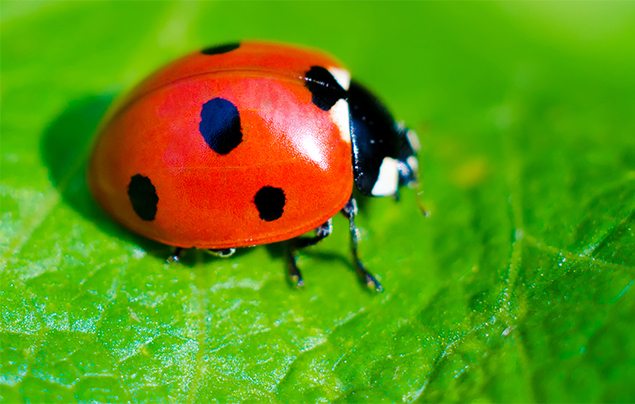
Index of this Page
126. Insects
127. Apologizing
128. Noise
129. Tidiness
***********************************************************************
Most insects are not seen in people’s homes, especially in clean, new homes, but are found outside, in nature. However, some insects, especially the flying insects such as flies, mosquitos & moths do find their way into people’s homes.
A “type” of living creature, animal or plant, including a type of insect, is called a “species”. The word “species” is used for both singular and plural – “One species”, “Two species”.
Some common examples of (species of) insects are –
Flies (e.g., house flies, blowflies, fruit flies, horse flies, sand flies . . . ) House flies and blowflies can spread disease, especially if they land on people’s food or eating utensils. Fruit flies can destroy or severely damage fruit crops if they ‘infect’ the crops in large numbers.
Mosquitos Some mosquitos spread dangerous diseases such as Malaria & Dengue Fever. The “qu” is pronounced as “k” – https://howjsay.com/search?word=mosquito
Ants Some types of ants live in the walls of old buildings and are attracted to very small scraps of food in your kitchen if you don’t keep the kitchen clean. Ants can be annoying when you have a picnic, outside.
Bees (honey bees) Bees don’t “bite”, they “sting”.Wasps & Hornets (dangerous – their sting can kill a person) https://www.youtube.com/watch?v=w7zWGOGjLxs
Cockroaches Usually in old buildings, especially in your kitchen if you live in an old building; not common in relatively new apartments especially in high-rise apartment buildings.
Termites (white ants) They eat wood and can do serious damage to the wooden foundations of houses etc., or even to your wooden furniture.
Crickets & cicadas Crickets live in holes in the ground and make chirping sounds at night. (https://www.youtube.com/watch?v=CQFEY9RIRJA)
Cicadas live in trees and can also make a loud chirping sound, but a much less pleasant sound (or, “call” or “song”) to that of crickets. The birds find it unpleasant and this helps protect the cicadas. (https://www.youtube.com/watch?v=hZeaNNR1Qq0)
Beetles & weevils
Ladybirds (= ‘Ladybugs’ esp. in the U.S.) "The favourite children’s bug!"

Lice (head lice, bed lice . . . ) Dangerous – some lice spread diseases such as Typhus
Fleas (e.g., living in the coat of your pet dog if you don’t keep your dog clean!) Some types of fleas can carry Bubonic Plague.
Moths – attracted to lights at night.
Butterflies (colourful! In Chinese culture, it’s good luck if a butterfly lands on your shoulder.)
Grasshoppers & locusts (These can destroy entire fields of crops when they exist as plagues, or swarms.)
Wasps and hornets (dangerous – their sting can kill a person) https://www.youtube.com/watch?v=w7zWGOGjLxs
A wasp building a nest
Praying Mantises
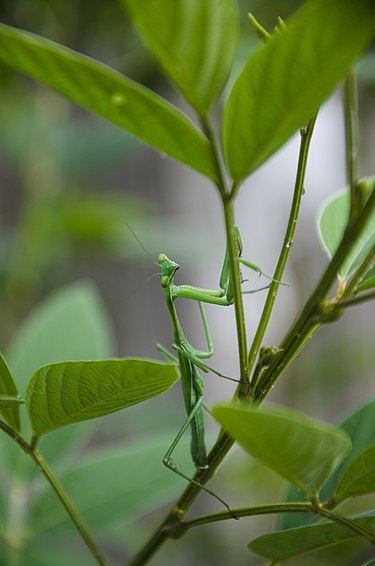
Stinkbugs
Leaf insects
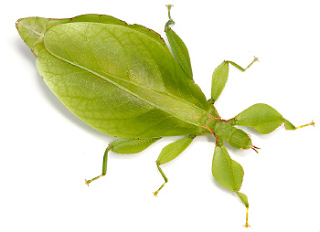
Stick insects These look like small sticks. Their appearance is a disguise to protect themselves from birds.
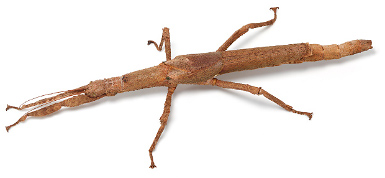
Aphids These are “sap-sucking” insects that can cause serious damage to crops and destroy the plants in people’s gardens.
Water striders These insects can walk on water.
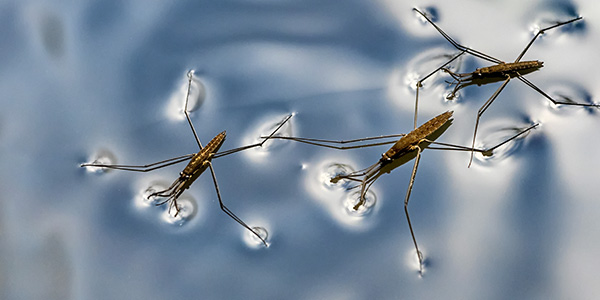
Spiders are NOT classified as insects (although some examiners might not know that!)
Other words –
Insecticide (e.g., in a spray can)
Insect repellent. The most common example is an insect repellent that you spray or put on your exposed skin to repel mosquitos.
Cockroach bait
Flywire / Mosquito wire / Mosquito netting – put on a window or door to prevent insects from coming into the home. Mosquito netting is put over people’s beds at night in some countries to protect the people from possibly dangerous mosquito bites.
an insect bite; an insect sting
Some insect bites, such as mosquito bites, produce an itch (cause your skin to feel itchy) or a rash.
Annoying, dangerous, poisonous (venomous), scary
Pollination, to pollinate (especially bees)
We get honey from bees.
Larva (singular), Larvae (plural) – young insects that have left the egg stage of life but have not yet grown into the same form as the adult insects. The best known example is the larva of the butterfly, which is a caterpillar at this stage of its life.
Some insects, such as wasps, hornets and ants build “nests”. In the case of some wasps, ants and bees, their nests can hold hundreds or thousands of insects. The nest of a colony of bees is usually called a “hive” or a “bee hive.”
Most insects do not (seem to) bring direct benefits to humans except the pollinating insects, especially bees. If we did not have these pollinating insects, most of our crops would not produce food! But many insects do perform the useful function of helping to keep the environment clean by eating dead creatures or waste matter such as rotting wood. So they are part of the balance of nature (the ecology).
Moths can damage clothes, for example, if they lay their eggs in your clothes that are hanging up in your closet or wardrobe. They (the moth larvae) end up eating holes in the clothes. People use mothballs to repel moths from their clothes.
The word, “bug” is a general word to describe a small insect when you don’t know what the actual name of the insect is. It is most commonly used in American English.
Recently there has been a “movement” (a “trend” or “fashion”) to promote the use of certain insects as food for humans. Insects are certainly high in protein. This new trend is partly connected to the idea of discouraging people from eating animal meat such as beef & mutton because these animals are said to “damage the environment” by producing greenhouse gases. But the idea is also to supply protein to the poorer people of the world who cannot afford normal animal meat and who, as in Africa, often kill endangered animals such as chimpanzees for food (“bush meat”).
Children around the ages of 4 to 7 often like to collect insects they find in a garden or other places outside.
***********************************************************************
To apologize = to say, “sorry” or, “I’m sorry.”
“Excuse me” and "Pardon me" are mild forms of apology, used more to show simple politeness than to sincerely ask for forgiveness.
An apology
People apologize when they feel – apologetic; sorry for hurting, offending or otherwise upsetting someone (e.g., causing someone to feel sad); guilty for committing a crime or sin or some other infraction; contrite (showing contrition); remorseful; ashamed; when they want to repair a relationship that they feel they have damaged; when they are seeking forgiveness; and when they want to show elementary good manners/politeness. Sometimes people apologize for not meeting the expectations of others (an example of shame).
By apologising one is acknowledging (= showing that one knows, showing that one is aware, admitting) that they have committed a misdeed (or not met the expectations of others). This is the first step towards self-improvement.
A mistake, an infraction, a misdeed, a “thoughtless word” (speaking without first considering what they are about to say), losing one’s temper, showing impatience towards another, showing an unreasonable degree of anger, insulting another person, being inconsiderate (thoughtlessness) . . .
One’s failings, one’s imperfections
In general, the more a person values a relationship, the more likely that person is to apologize. Not apologizing implies that the person feels the relationship has little or no value i.e., that they are taking the other person for granted. But sometimes people don’t apologize because their sense of shame is so great that they don’t want to mention the matter at all and unrealistically hope that the matter will be forgotten, as if it never happened, or when they feel that the other person will not accept the apology / will not be able to forgive the misdeed. Alternatively, they don’t apologize because they are self-centred, or do not think that they have done anything wrong.
A saying (and a line in a song) – “True love means never having to say sorry.” This could be interpreted to mean that two people who truly love each other will never hurt the other. Or it could be interpreted to mean that when you truly love someone you accept their imperfections. The latter is what most people think the saying means. But most people do consider that apologies are important and necessary even when, or especially when they truly love someone.
Apologies vs.. Actions. Apologies become “empty words” or “hollow” if someone repeatedly apologizes for a misdeed that they continue to do (= repeatedly do), rather than changing their behaviour and not repeating the misdeed.
***********************************************************************
***********************************************************************
Under Construction
***********************************************************************